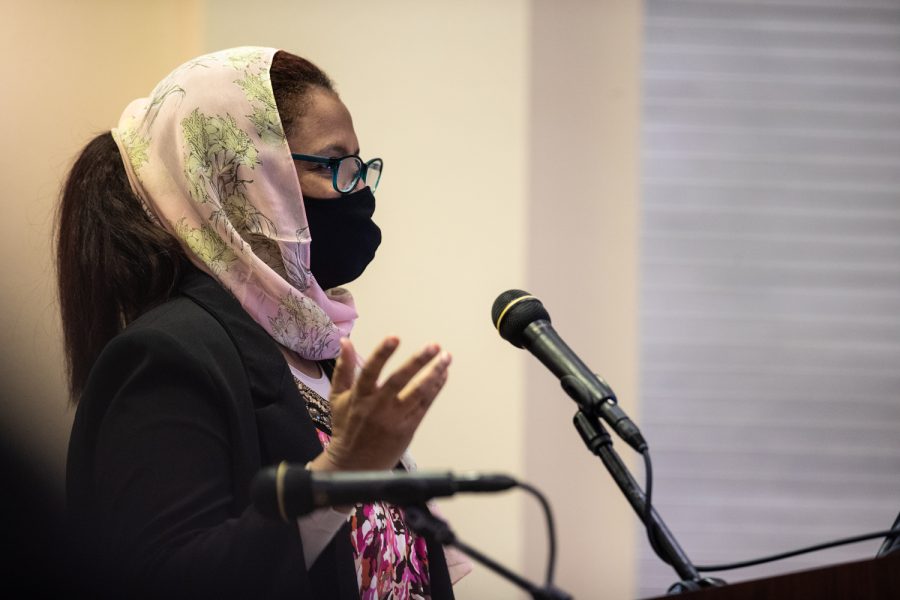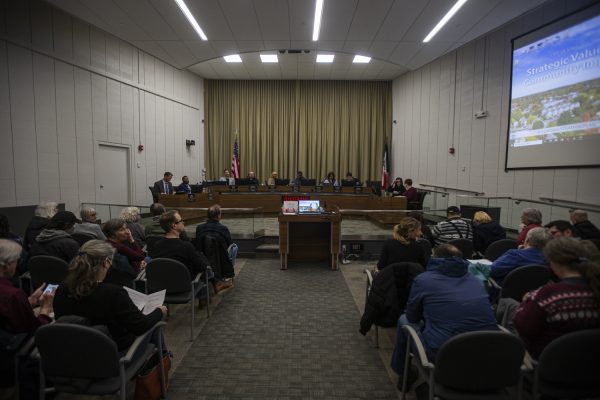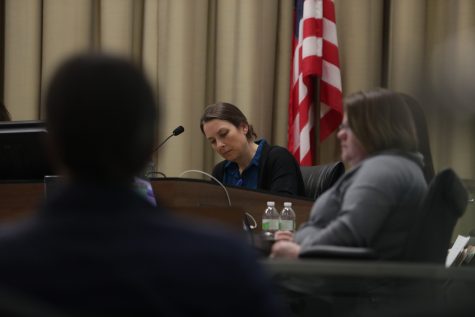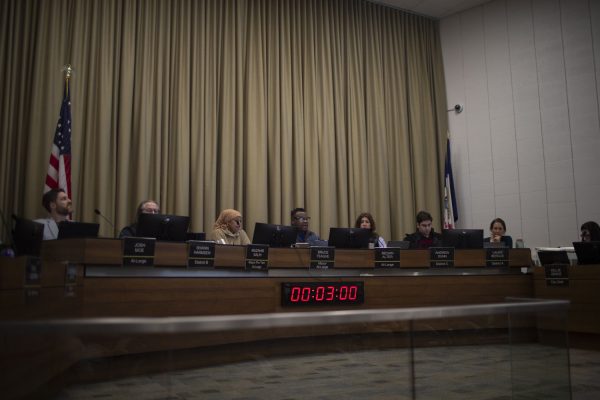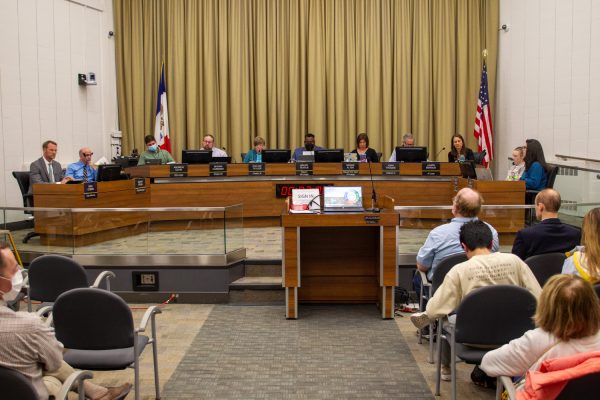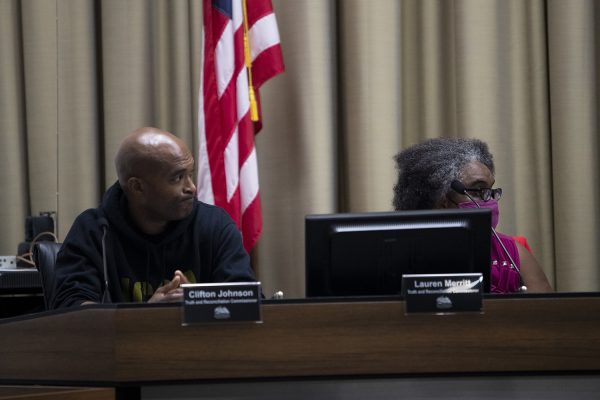Center for Worker Justice pays $20,000 in penalties, experiences issues with IRS
The Center for Worker Justice of Eastern Iowa has had recent dealings with the IRS, including paying $20,000 in late tax filing penalties and issues related to the revocation of their nonprofit status.
Executive director of the Center for Worker Justice of Eastern Iowa and former Mayor Pro Tem Mazahir Salih speaks at an Iowa City City Council meeting on Tuesday, Feb. 15, 2022.
October 24, 2022
The Center for Worker Justice of Eastern Iowa, a nonprofit based out of Iowa City, paid $20,000 to the IRS for late tax filing penalties. The nonprofit also experienced issues with its 501(c)(3) nonprofit status being revoked due to miscommunication from the IRS.
The Iowa City nonprofit was created in 2012 to pursue social and economic justice for Eastern Iowans.
The center’s volunteer treasurer Charlie Eastham said the nonprofit missed the tax filing deadline for both 2018 and 2019. The filings are due May 15 of the following year, the IRS said.
Eastham said 2018 filing was late because it was the first year the nonprofit had to file a 990 tax form rather than the 990-EZ tax form the center was used to due to the CWJ’s increased annual gross receipts.
The 990 form is much more complicated than the 990-EZ form, Eastham said, and the CWJ’s staff didn’t have the necessary support to adjust to this change.
For 2019, the filing was late because on top of his duties as volunteer treasurer for the CWJ, Eastham also had to run his campaign for the Iowa City Community School District school board, which took up a lot of his time, he said.
David Bright, the Larned A. Waterman Iowa Nonprofit Resource Center’s associate director, said for each late filing, the organization will be subject to penalties, the amount of which is based upon the organization’s gross receipts.
If a tax-exempt organization does not file the necessary 990 form for three consecutive years, its tax-exempt status will be revoked, Bright said.
The CWJ paid the IRS almost $20,000 to cover late filing penalties, Eastham said. The CWJ is currently in the process of repealing these penalties for the aforementioned reasons.
“We’re working with professional accounting firms to change the process we’re using for doing our 990 filing requirements,” Eastham said. “As part of that process, we’re going to engage those accounting firms to help us with the penalty appeal process.”
The money used to pay for these penalties came from private donations made to the CWJ and not from government funds, Eastham said.
The center’s Executive Director Mazahir Salih said while the organization filed late for two years, they did not file late for a third consecutive year in 2020. However, the CWJ discovered on the IRS website that its nonprofit status had still been revoked.
“We immediately took action by calling the IRS, where we were left on hold, transferred to a representative, and never got through,” Salih said. “In the meantime, our treasurer drafted a letter to the IRS on August 14, 2021.”
In the letter, obtained by The Daily Iowan, the center sent proof to the IRS that showed it had not filed late for 2020. On Aug. 23, the CWJ received an official letter from the IRS stating their nonprofit status was revoked.
However, the IRS then sent another letter, which was also obtained by the DI, to the CWJ on Aug. 30 that said to disregard the notice of revocation. The letter states that the revocation was an error on the IRS’s part.
“I admit, yeah, we paid a fee, and we filed late enough to pay the fee, but we did not lose the 501(c)(3) status,” Salih said.



